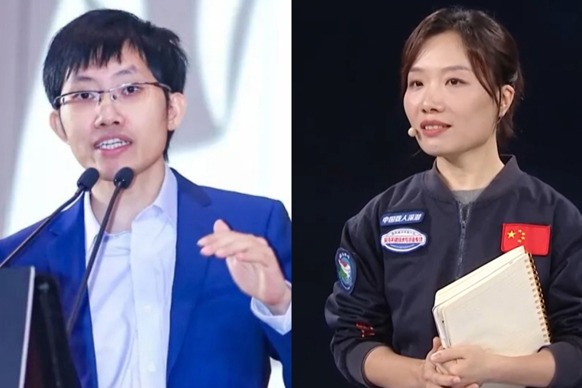S. Korean author wins Nobel Prize in literature
By EARLE GALE in London | China Daily Global | Updated: 2024-10-11 09:05
The South Korean author Han Kang has won the Nobel Prize in literature "for her intense poetic prose that confronts historical traumas and exposes the fragility of human life".
The Nobel Committee at the Swedish Academy said on Thursday the writer, who was born in 1970 in the southern city of Gwangju before moving to Seoul, has devoted herself to her writing, and also to art and music, which "is reflected throughout her entire literary production".
Anders Olsson, chairman of the academy's Nobel Committee, said: "She has a unique awareness of the connections between body and soul, the living and the dead, and in her poetic and experimental style has become an innovator in contemporary prose."
The Nobel Prize in literature has been criticized in the recent past for its apparent focus on European and North American writers and its favoring of the English language, although last year's winner, Norwegian writer Jon Fosse, was tapped for the award despite writing in Nynorsk, which is one of Norway's two official written languages.
As of 2023, the award had been presented 29 times to English-speaking laureates, 16 times to French speakers, 14 times to writers who communicate in German and 11 times to authors who write in Spanish.
Against that backdrop, John Self, The Guardian newspaper's book critic, said before this year's unveiling of Han as the winner that he thought the time was right for Chinese writer Can Xue to win the accolade.
"Can Xue is a solid bet," Self said. "Also a win for her would help the academy overcome its weakness for European men."
Previous winners of the award have included the singer-songwriter Bob Dylan, British politician and historian Winston Churchill, and United States novelist and editor Toni Morrison.
The literature prize has also been criticized for having been male-dominated since its inception in 1901, with only 18 women being named among the 120 laureates over the years.
Nobel Prize winners will be presented with a medal and cash awards of 11 million Swedish krona ($1.06 million) at a ceremony on Dec 10.
























